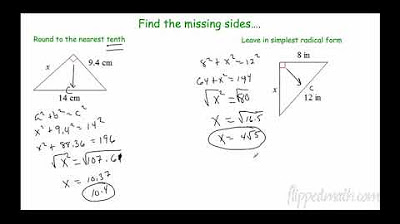EconMovies #8: The Dark Knight
Summary
TLDRIn this engaging lesson, Mr. Clifford explores the economics of 'The Dark Knight,' focusing on oligopolies and Game Theory. He explains how firms like Verizon and AT&T exemplify oligopoly behavior, highlighting the risks of collusion. Using a dramatic analogy from the film, he introduces the prisoner’s dilemma to illustrate strategic decision-making. Shifting to the comic book industry, he examines how Marvel and DC Comics navigate competition, using a Game Theory Matrix to identify dominant strategies. The discussion culminates in the concepts of Nash equilibrium and profit maximization, showcasing the practical applications of economic theory in popular media.
Takeaways
- 😀 Oligopolies are markets controlled by a few large firms, impacting competition and pricing.
- 📉 Collusion, or firms working together to set high prices, is illegal in the United States.
- 🤝 Firms in an oligopoly are interdependent, meaning their decisions directly affect each other.
- 🎲 Game Theory studies strategic decision-making in competitive scenarios.
- 🚤 *The Dark Knight* illustrates game theory through a dramatic social experiment involving two boats.
- 🔒 The *prisoner's dilemma* highlights the complexities of decision-making when individuals must choose without knowing the other's choice.
- 🧙♂️ The comic book industry is an oligopoly, with Marvel and DC Comics being the major players.
- 💰 DC Comics has a dominant strategy of producing stories about the Joker for maximum profit.
- ❓ Marvel does not have a dominant strategy, as its choices depend on DC's decisions.
- 📊 Nash equilibrium occurs when each firm makes optimal choices based on the other's strategies.
Q & A
What is the main focus of Mr. Clifford's lesson in the video?
-Mr. Clifford focuses on economics, specifically microeconomics, by using 'The Dark Knight' to illustrate concepts like oligopolies and game theory.
What defines an oligopoly?
-An oligopoly is a market structure where a few large firms control the industry, leading to limited competition. In the U.S. wireless market, this is exemplified by Verizon, AT&T, Sprint, and T-Mobile.
What is collusion and why is it illegal?
-Collusion occurs when firms in an oligopoly agree to set prices high to increase profits. It is illegal in the U.S. because it undermines competition and can harm consumers.
How do firms in an oligopoly influence each other's decisions?
-Firms in an oligopoly are interdependent, meaning the actions of one firm directly affect the others. This requires them to consider competitors' potential responses when making decisions.
What is game theory and how is it relevant to oligopolies?
-Game theory is the study of strategic interactions among decision-makers. It helps firms in an oligopoly to strategize based on anticipated actions of their competitors, maximizing their profits.
What is the prisoners' dilemma and how does it relate to game theory?
-The prisoners' dilemma is a classic example in game theory where two individuals must decide whether to confess or deny a crime, with outcomes dependent on each other's choices. It highlights the complexities of decision-making in competitive environments.
What market share do Marvel and DC Comics hold in the comic book industry?
-Marvel Comics holds about 37% market share, while DC Comics holds about 31%, making the comic book industry an oligopoly.
What is a dominant strategy in game theory?
-A dominant strategy is the best choice for a player, regardless of what the other player does. In the example discussed, DC Comics has a dominant strategy to produce a comic about the Joker, as it yields the highest profit.
What is the Nash equilibrium?
-The Nash equilibrium is the outcome where each firm in an oligopoly maximizes its profit while taking into account the decisions of other firms. In this case, DC would choose the Joker, and Marvel would choose the Mandarin.
Why is it important for firms in an oligopoly to analyze game theory matrices?
-Analyzing game theory matrices helps firms understand the potential outcomes of their decisions in relation to their competitors, allowing them to devise strategies that maximize profits while minimizing risks.
Outlines

Cette section est réservée aux utilisateurs payants. Améliorez votre compte pour accéder à cette section.
Améliorer maintenantMindmap

Cette section est réservée aux utilisateurs payants. Améliorez votre compte pour accéder à cette section.
Améliorer maintenantKeywords

Cette section est réservée aux utilisateurs payants. Améliorez votre compte pour accéder à cette section.
Améliorer maintenantHighlights

Cette section est réservée aux utilisateurs payants. Améliorez votre compte pour accéder à cette section.
Améliorer maintenantTranscripts

Cette section est réservée aux utilisateurs payants. Améliorez votre compte pour accéder à cette section.
Améliorer maintenantVoir Plus de Vidéos Connexes

English Expressions: three-word phrasal verbs

Penggunaan Simple Present Tense dan Contohnya | Kampung Inggris LC

Geometry – 7.1 Pythagorean Theorem and Its Converse

From Novice to Expert: Naming Chemicals Made Easy

Rounding and Working with Significant Figures in Physics

How to Write Chemical Equations

ESL - Writing a newspaper article (step-by-step guide)
5.0 / 5 (0 votes)
